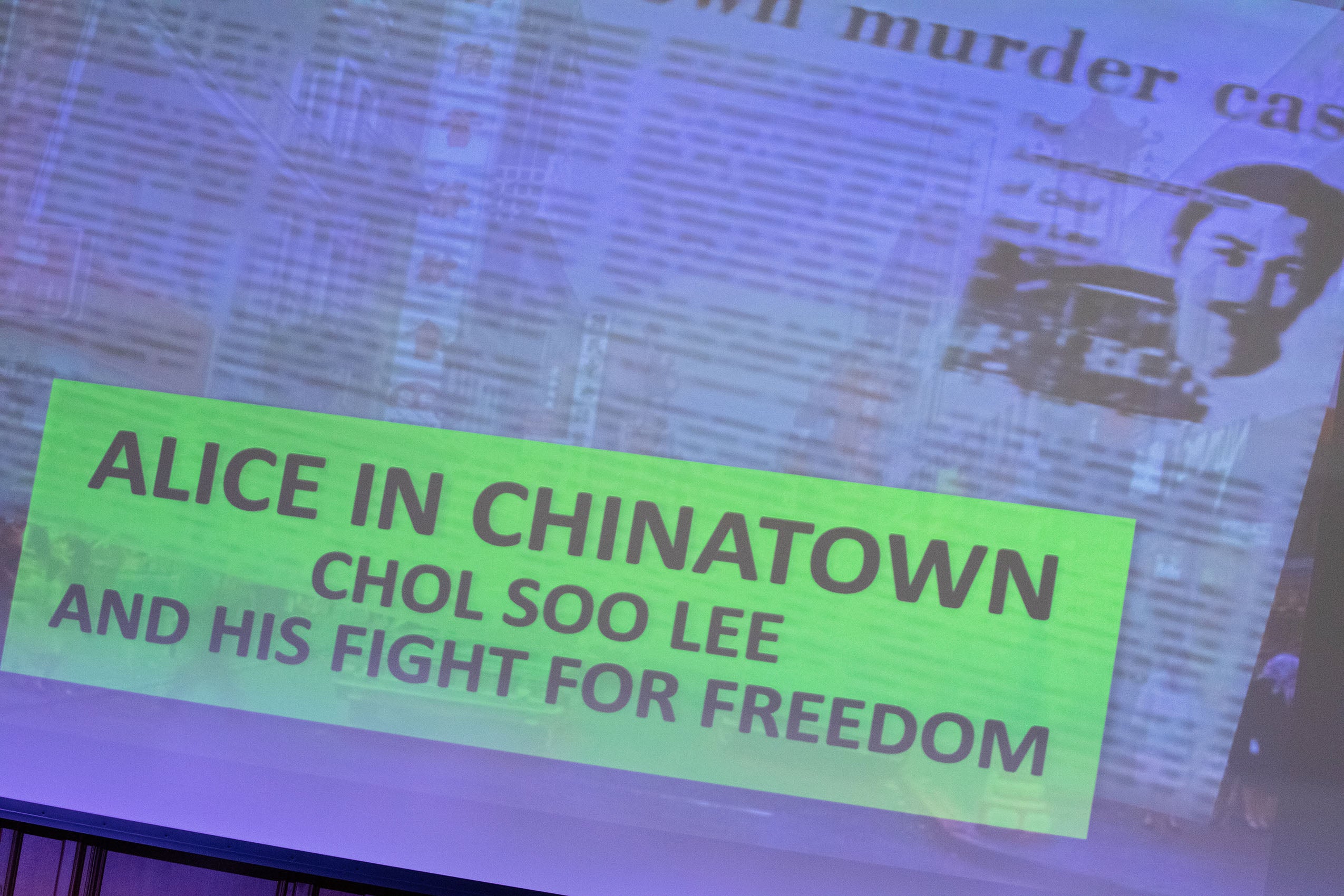In February, the Asian Pacific American Law Students Association (APALSA) welcomed the Honorable Judge Denny Chin of the United States Court of Appeals for the Second Circuit for a reenactment of a key trial that shaped Asian American history. For the past four years, professors, administrators, and students have brought to life a trial which raised questions about achieving genuine racial justice in our legal system—all of which are still relevant today.
This year’s reenactment, titled “Alice in Chinatown: Chol Soo Lee and His Fight for Freedom,” is about a Korean immigrant who was convicted of first-degree murder in a gang-related shooting in San Francisco’s Chinatown in 1973, and sentenced to life in prison for the crime. Four years after his conviction, while serving his sentence, Lee fatally stabbed another inmate, a neo-Nazi, in a prison-yard fight. Despite claims of self-defense, Lee was convicted and sentenced to death. Eventually, a third-generation Japanese American college student, an American-born Korean community organizer, and a Korean immigrant newspaper reporter began to question the fairness of the police investigation and judicial proceedings after Chol Soo Lee was sentenced to death post-convictions. The case became known as the “Alice in Chinatown Murder Case.” The effort to free Chol Soo Lee that followed brought together a broad coalition of Asian Americans of different generations, ethnicities, and ideologies.
The reenactment, developed by the Asian American Bar Association of New York (AABANY), under the leadership of Judge Chin and Kathy Hirata Chin, was presented in early February during APALSA’s 26th Anniversary Conference, which convened attendees to reflect on the ways in which Asian Pacific American and other underrepresented attorneys and activists have progressed in the legal, political, and social spheres.
Related Coverage
https://today.law.harvard.edu/fred-korematsu-and-his-fight-for-justice/
https://today.law.harvard.edu/counts-real-americans/
https://today.law.harvard.edu/apalsa-conference-judge-chin-brings-civil-rights-trial-life/
